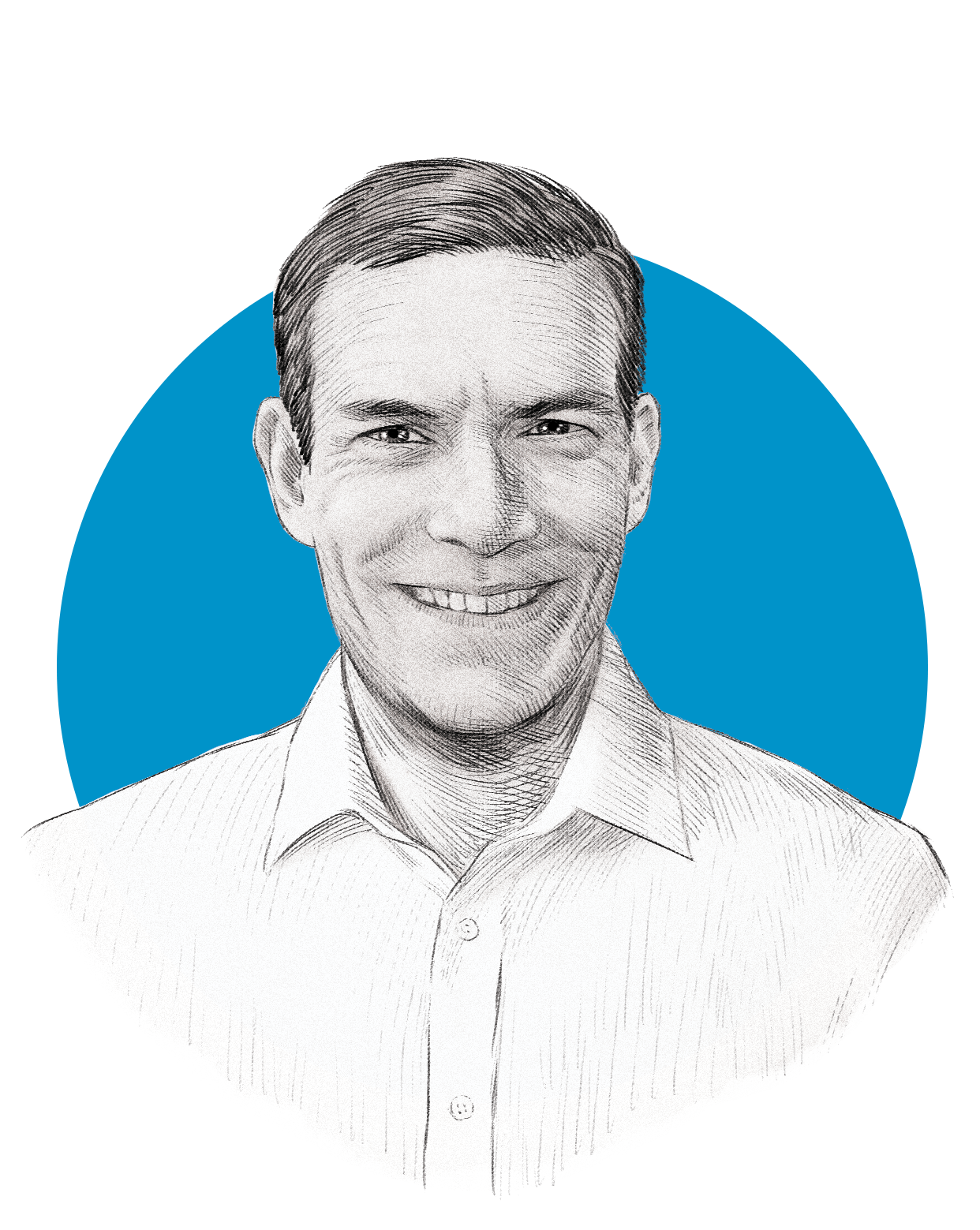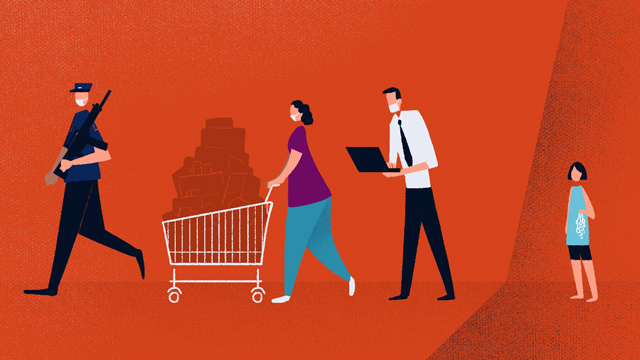Wealth inequality, education inequality, health inequality, climate inequality, social network inequality...All kinds of inequality problems were exposed and amplified during this COVID-19 epidemic. How do basic education and infrastructure work? How to balance the mitigation of health inequality and intellectual property protection? Can equality and efficiency be balanced? What role does finance play in inequality?
PKU Financial Review interviewed Matthew Owen Jackson, William D. Eberle Professor of Economics at Stanford University, on inequality issues.
Matthew Owen Jackson is the William D. Eberle Professor of Economics at Stanford University, an external faculty member of the Santa Fe Institute, and a fellow of CIFAR. He received his Ph.D. from Stanford University in 1988. Jackson has been honored with the Social Choice and Welfare Prize, the B.E.Press Arrow Prize for Senior Economists, and a Guggenheim Fellowship. He has served as co-editor of
Games and Economic Behavior,
the Review of Economic Design, and
Econometrica.
PKU Financial Review: In the past, developing countries were dissatisfied with globalization, but now more and more developed countries are joining in the fight against globalization. So will globalization increase inequality? Which groups will benefit from it?
Matthew O. Jackson: It is easy to demonize globalization, and it does play a small role, but most of the research makes it clear that much of the growth in inequality has come from other sources, such as technological advances and automation. The growing inequality within many countries has more to do with the fact that the new economy rewards higher education and makes those with less education into a commodity. Thus, key sources of inequality trace to social structure and the disparities in the access that people have to education, opportunities, information. If anything, globalization has decreased world inequality, even as we have seen growing inequality within countries. Globalization has brought a lot of growth to the world and helped reduce poverty.
There are important challenges with globalization, as we have seen with the financial crisis of just over a decade ago, and the current pandemic. However, the peace and prosperity that international trade has brought too much of the world outweigh the costs and risks. What globalization requires is more international cooperation and understanding in order to deal with the risks it brings, while still enjoying many of its benefits. Instead, the world seems to be moving backwards. We shouldn't scapegoat globalization as the main source of inequality -- we should address the real drivers of inequality, and not forget the gains that globalization have brought us.

It is clear that the pandemic has caused enormous disruptions in education, and they have been very unevenly distributed. This can have long-term consequences given how important education is in modern economies. Thus, the consequences are not just for the current students, but also for whole economies -- emphasizing how vital education is. China has been a country that has invested hugely in education over the past few decades, while education in much of the rest of the world was relatively stagnant. Education will determine future growth, and it is one of the most important investments that any country can make. Making sure that it is evenly distributed among a population is important for many reasons: equality, economic mobility, and overall national productivity. One of the best strategies for helping combat educational inequality is to invest heavily in education beginning at very young ages. If the gap is not closed at early ages, it only grows. The pandemic makes this particularly challenging, but offering greater support to parents in educating their youngest, especially poor ones, can help a great deal.
PKU Financial Review: In many underdeveloped countries, the epidemic started in poor areas, and even in Hong Kong, China. Because many people live together and even share toilets. Is this a kind of spatial inequality? Should the government set up a standard housing code from the perspective of the virus and epidemic?
Matthew O. Jackson: This is not new to COVID-19, but has been true of many diseases over time. Some spread evenly, but many diseases that are due to poor sanitation - including malaria and dysentery - continue to have very unequal impacts. This is one situation in which relatively cheap investments can make a very large difference in people's health. Improving basic sanitation, housing, and access to nutrition, offers great leverage in improving a population's health. It has been an area of progress over the past decades, but the world still has a long way to go. The recent pandemic makes some of the remaining challenges even more evident.
PKU Financial Review: During this epidemic, compared to the whites, people of color have higher unemployment rate and higher case fatality rates for COVID-19. Doctors without Borders, a nonprofit organization, urged people to abandon patents and cooperate in fighting the epidemic. IBM, Microsoft, Amazon and other multinational companies and research institutions have proposed the Open COVID Pledge, agreeing to devote their intellectual property to fight the epidemic for free. Even before the epidemic, the gap between the rich and poor had led to growing dissatisfaction with the monopoly of high drug prices brought by patents. In your opinion, what is the balance between reducing health inequalities and protecting intellectual property rights?
Matthew O. Jackson: Developing new drugs is very time consuming, costly, and involves substantial risks. Providing patents and the promise of future profits is a relatively crude way to incentivize sufficient investment, and it has many inefficiencies associated with it, given the imperfections of many healthcare markets and systems. It contributes to growing inequality in a variety of ways. It is one area where broader and more subsidized open science can make a large difference.
PKU Financial Review: What do you think is the main cause of inequality? Capital to income ratio? Unequal distribution of income? What should the government do? Why can’t tax and welfare policies solve inequality efficiently?
Matthew O. Jackson: Tax and welfare policies treat the symptoms: the outcomes of inequality. They do not address the roots that cause the inequality and thus do not cure the disease. Much of my research on social networks and their economic consequences has focused on their impact on inequality and immobility. Our friends and acquaintances account for much of our knowledge, opinions, behaviors, and opportunities. As our networks tend to be heavily segregated along economic and ethnic grounds, they provide advantages to the wealthy and disadvantages to the poor. Much of my recent book – “The Human Network” deals with these issues. There are many things that can be done to deal with inequality at its roots, in addition to trying to deal with its outcomes. One is that we can help provide the information and opportunities that are lacking, including better education for the poor. In particular, policies like affirmative action benefit not only the person being helped directly, but also helps spread opportunities and information to their friends. Another, and more challenging thing to do is to help broaden people's social networks. Interestingly, this also traces back to education, as many of the friendships that influence a person's trajectory come from their childhood and schools. Providing smaller classes that mix students of different income backgrounds makes a big difference in the trajectory of a student coming from a poor family. These are relatively basic policies that can make big changes.
PKU Financial Review: Recently, Presumptive Democratic presidential nominee Joe Biden said that he would increase tax on real-estate to raise money to stimulate the economy. What do you think of this approach?
Matthew O. Jackson: Taxes and redistribution can be helpful for addressing the symptoms of inequality, and well-targeted spending can help stimulate the economy. The current crisis is putting the world economy into unknown waters in terms of the patterns and extent of unemployment and loss of business. It appears that we will need enormous amounts of spending to help us recover, and it is better to do some of that proactively, rather than waiting until things deepen even further. I have made suggestions about the types of spending that would be most beneficial in an article
A New `New Deal': Building a New Economy Instead of Rebuilding the Old One , including infrastructure, education, research, and spending on health, benefits, and loans for both people and businesses in a volatile world that requires increasing flexibility. Ultimately such spending will have to be paid for, and the most badly needed tax increase is on carbon emissions: that would be a great starting point.
PKU Financial Review: During this epidemic, low-income groups (without network coverage) are more likely to lose their jobs. We found that inequality is not just about income, but also about chance, race, health, digital divide, and all kinds of inequality in asset allocation. What can finance do in the process of narrowing inequality?
Matthew O. Jackson: Indeed, it is already clear that job losses are hitting the poor the hardest. Lost childcare and closed schools are also more of a problem for poor, not to mention the health costs of the pandemic. In the long run, we need to address these issues at their roots, as discussed above. Finance plays a supporting role in this, by helping the poor access loans that they might not otherwise have access to; but the issues run very deep and require more holistic approaches.
PKU Financial Review: Do you think that current climate change is also intensifying inequality? For example, poor agricultural countries are more affected by extreme weather. Will this cause the deterioration of global trade, debt and conflict in the future? What kind of relief can finance provide?
Matthew O. Jackson: Generally most crises hit the poorest people the hardest. They are less mobile and have fewer resources and sources of insurance. For example, as climate change ruins agriculture, and leads to extremes including both floods and droughts, in some of the poorest portions of the world, the bulk of the pain will be felt by the poorest segments of the population. Whether this impacts global trade will be up to governments. Unfortunately, governments tend to raise barriers when they hit economic turmoil - which is exactly the wrong reaction. What we need is global cooperation and long term investment in both reducing carbon emissions, and providing for the difficulties that rising temperatures will continue to impose. Finance is one part of this. Unfortunately, the current pandemic is already pushing the world into a crisis and distracting it from the long term investments necessary to deal with climate change and the economic damages it will cause.
PKU Financial Review: Do you think there is a balance between equality and efficiency?
Matthew O. Jackson: Yes, there is a strong relationship. A person’s lack of an opportunity to use their full talents is also a loss for the economy. Greater inequality means that whole groups of people lack the information and opportunities that they need to thrive. Those losses are transmitted across generations, and are losses for all of us --it lowers not only production, but also invention and growth. Getting people the information and opportunities that they need to make full use of their talents is the most important way to lower inequality, improve economic mobility, and increase economic productivity and growth.
 Matthew Owen Jackson, William D. Eberle, Professor of Economics at Stanford University
Matthew Owen Jackson, William D. Eberle, Professor of Economics at Stanford University
The Chinese version of this article is published in PKU Financial Review, an academic publication initiated by PHBS and Peking University HSBC Financial Research Institute. Sponsored by the Nanfang Media Group, it focuses on cutting-edge theories and critical practice in the finance field, creating an open platform to promote academic research and industry innovation in China's financial sector.
Edited by Du Wenxin and Annie Jin



